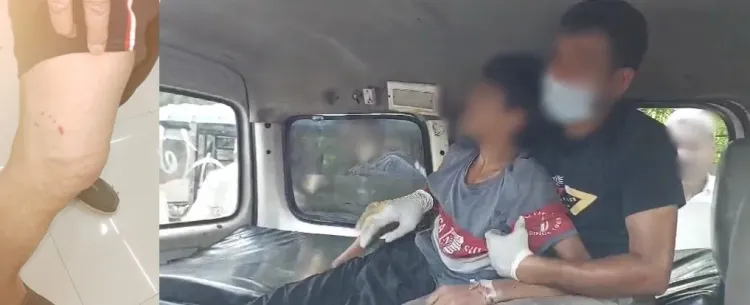What Measures Are Being Taken to Prevent Rabies Deaths in Kerala?

Synopsis
Key Takeaways
- Immediate wound washing is essential for rabies prevention.
- Recognizing the severity of dog bites is crucial for proper treatment.
- Timely administration of rabies immunoglobulin (RIG) can save lives.
- Children are at a higher risk of rabies due to their weaker immune systems.
- Strict adherence to treatment protocols is vital to prevent avoidable deaths.
Chennai, July 5 (NationPress) Following the tragic deaths of two individuals in Kerala due to rabies, despite having received anti-rabies vaccinations, the Tamil Nadu Directorate of Public Health and Preventive Medicine has released a critical advisory aimed at healthcare professionals.
This notice emphasizes the immediate necessity for proper training in recognizing the severity of dog bites and ensuring the timely and accurate administration of post-exposure prophylaxis (PEP), which includes rabies immunoglobulin (RIG) and the anti-rabies vaccine (ARV).
Dr. T.S. Selvavinayagam, the Director of Public Health, communicated to district and city health officers about the dangers of rabies, a deadly viral infection that targets the brain and nervous system, stating that survival is rare once symptoms manifest.
“PEP for rabies is life-saving only when administered correctly and without delay,” he stressed.
This advisory comes in light of the unfortunate fatalities of two boys in Kerala who were bitten by stray dogs yet had undergone vaccination.
The cause of these tragic events is suspected to relate to delays in initiating PEP, not administering RIG for category III bites, improper wound cleaning, missed or late vaccine doses, or problems with vaccine storage and delivery.
Healthcare providers are reminded of the importance of RIG in neutralizing the virus at the site of deep or bleeding wounds, particularly in the early days before the immune response from the vaccine begins.
Without RIG, the virus may spread to the nervous system, even with vaccination. The directorate also pointed out that wounds on the face or head necessitate prompt and vigorous treatment, as any delays—even by a few days—can make the vaccination ineffective.
Thorough washing of wounds with soap and water for a minimum of 15 minutes is the most crucial first step in rabies prevention.
Children are particularly vulnerable due to their weaker immune systems and potential inaccuracies in reporting bites, the advisory noted.
The directorate reiterated the guidelines for evaluating the severity of dog bites: Category I: No PEP is needed for touching or feeding animals, or if there are licks on intact skin. Category II: ARV is necessary for minor scratches or abrasions without bleeding. Category III: ARV with RIG is essential for bites or scratches that cause bleeding, or licks on broken skin.
All healthcare facilities are urged to adhere strictly to these protocols to avert preventable rabies fatalities.









